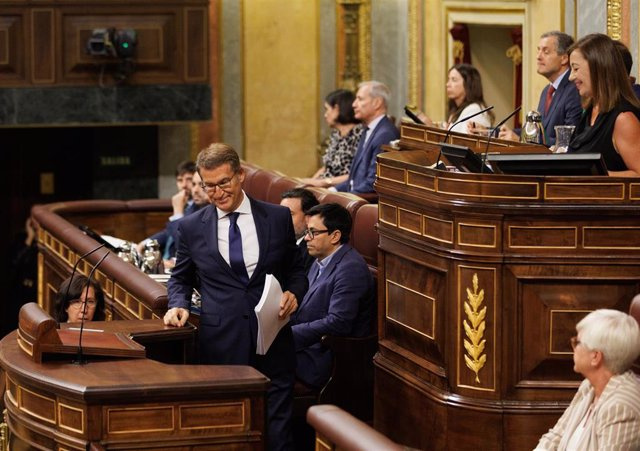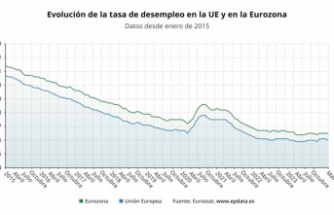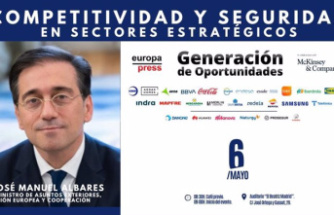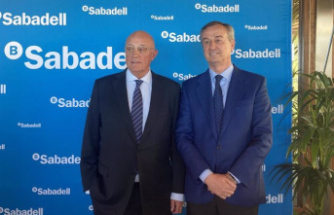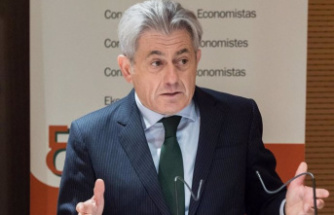Targets average real growth of 2.5% each year of the next decade
MADRID, 26 Sep. (EUROPA PRESS) -
The leader of the PP and candidate for the Presidency of the Government, Alberto Núñez Feijóo, has proposed maintaining the current measures against inflation until prices are controlled intensely, temporarily extending the VAT reduction on food to meat, fish and preserves and limiting free public transport to the income level.
During his investiture speech before the Congress of Deputies, Feijóo warned that Spain suffers "important economic fragilities" that must be faced. "We have the challenge of strengthening the welfare state so that future generations have it with the quality that we are enjoying," he stressed.
For this reason, Feijóo has proposed to the Lower House to promote a Pact for the Sanitation of the Economy, integrating social and economic agents, with which the most urgent things will be faced first and then draw up a strategy that guarantees more growth. healthy and sustainable.
In economic matters, Feijóo has proposed addressing as a priority the reduction of personal income tax for low and medium incomes (with incomes of up to 40,000 euros), to compensate for the additional burden that inflation has caused on this tax.
In addition, it has proposed maintaining the reduced rate of VAT on electricity and gas, the aid of 200 euros for the most vulnerable and free public transport, studying with the Tax Agency a method so that its application is done with an income limit.
In addition, it will ask entities that the resources they allocate to the extraordinary banking tax - approved by Pedro Sánchez's Executive - be automatically injected into families that cannot afford the mortgage increase.
Feijóo has set the objective of an average real growth of 2.5% each year of the next decade, for which three reforms will be necessary: a reform of a more accessible, more efficient and more economical Administration; another in the tax area and another to provide greater facilities to employers.
Firstly, it proposes expanding the responsible declaration procedure, generalizing positive administrative silence and assuming the commitment to eliminate three current regulations for each new one that is approved.
Regarding tax reform, Feijóo believes that it should be done on the basis of the work of the committee of experts that has already addressed this issue. This should guarantee that it does not endanger the sustainability of the system and take as an example the communities where selective reductions have been applied with good results.
In labor matters, it proposes, among other issues, to know the real situation and make public the number of inactive discontinuous permanent employees that exist in our country, to subsequently draw up a National Training Strategy taking into account the communities, in a specific Conference of Presidents, with all the training centers that may be involved and the companies.
In addition, it is proposed to accompany investors, creating a Strategic Industrial Projects Office and an investment fund to consolidate the growth of start-ups.
It has also proposed the temporary reduction of contributions to alleviate the rise in labor costs and a tax relief for new investments, especially for adaptation to climate change, digitalization and for innovation investments.
It also proposes that small entrepreneurs who are starting out do not pay taxes in the first two years of activity, which would imply a strategic commitment to entrepreneurship to reactivate the economy with more intensity in the face of current uncertainty.
Finally, it offers taxation for large assets that brings Spain closer to the rest of Europe and does not undermine economic powers and proposes establishing a new policy with the European Funds, based on transparency and with a renegotiation through mechanisms to inject funds more quickly in key sectors.
In terms of housing, it offers as a basis the Plan committed to in the electoral program, without proposing "magic solutions or interventionist models that do not work", but rather focusing on young and vulnerable people as a priority.
It proposes a historic increase in supply by taking advantage of idle public land, and giving legal security to the owners "that has been lost", changing the Law to vacate within 24 hours.

